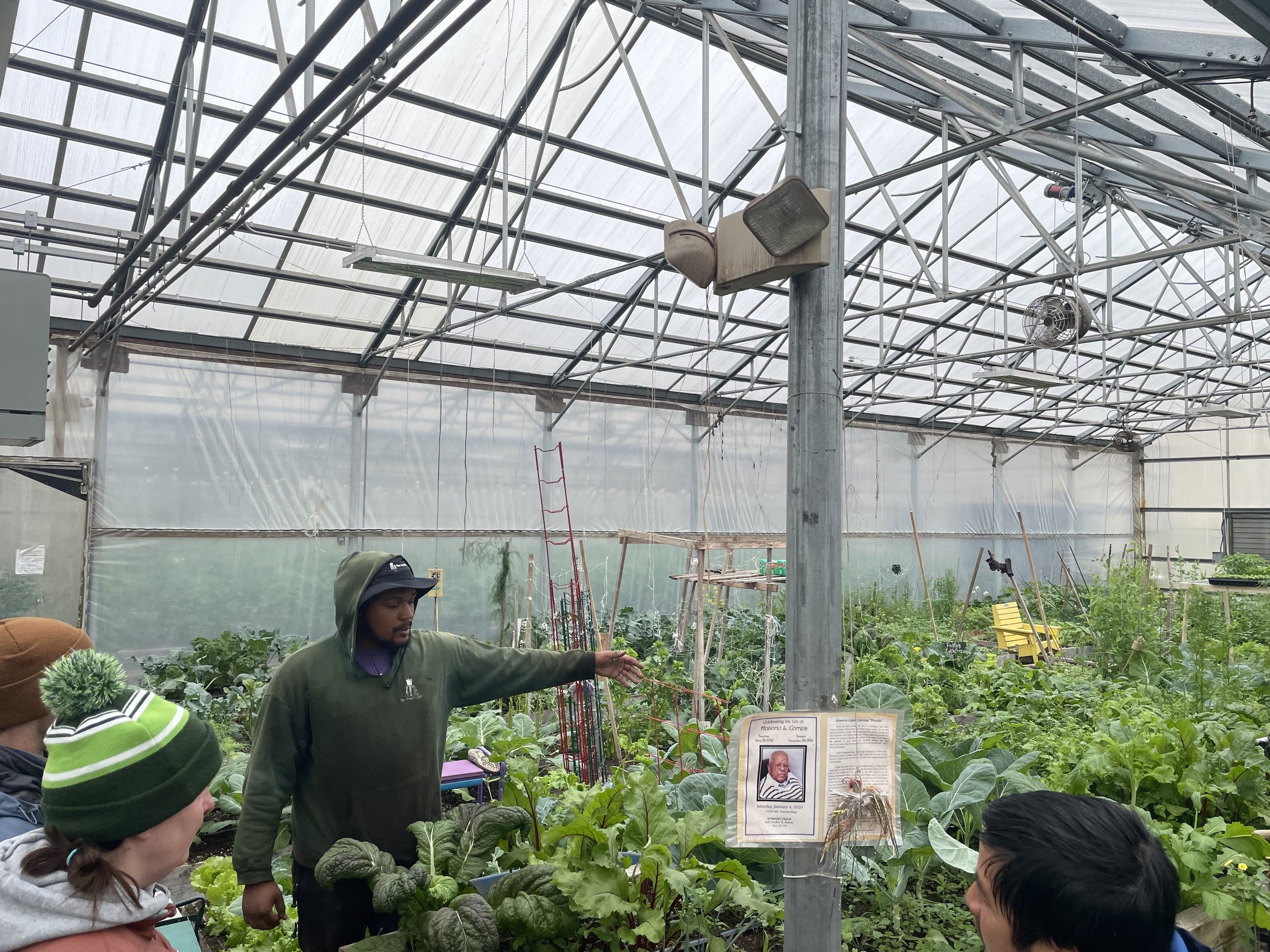Return of the Institute
Spring Institute participants enjoying Serve & Grow in Lynn
Last year, The Food Project hosted in-person Fall and Spring Institutes for the first time since the start of the COVID-19 pandemic. Throughout its history, the Institute has aimed to provide individuals and groups from other organizations an opportunity to learn from our methods, our history, and the learning that we’ve done in creating our nationally recognized youth development through farming programs.
Returning to an in-person Institute coincided with the decision to update the model. The redesign was led by Deputy Director John Wang and Associate Director of Impact & Initiatives Max Gittlen, with help from the Greater Boston and North Shore Youth & Community Programs Fellows.
The goal of the redesign was to make the Institute a more authentic and honest experience by integrating Institute participants with our youth and staff, and initiating open conversations about The Food Project’s successes and failures.
“There was a disconnect. I remember as a youth, participants would come during the summer and watch us lead a workshop but they wouldn’t say anything to us,” recalls North Shore Youth & Community Programs fellow Caroline O’Connor. “With everyone more involved [in the redesign], the goal was to change youth mindsets from ‘who are these people?’ to ‘there are people doing similar work who want to connect.’”
Institute participants meeting TFP fellows at the Lynn Farmers Market
Those who have attended last year’s Institutes traveled between each of our sites. They spoke with farmers and program staff from Lincoln, Boston, and the North Shore to explore the land and better understand TFP’s mission and values. They were invited to draw parallels between their organizations and TFP, and learn about the challenges we’ve faced from being at the crossroads of youth development and agriculture for over thirty years.
Participants also participated in a youth-led Serve & Grow, broken up into crews and farming alongside youth on one of our farms. In the Spring, participants attended a North Shore youth-led community event about food justice at Lynn Technical Vocational School.
All of this was curated to foster honest conversations and mutual learning between all involved. This was a key aspect of the redesign, and led to dialogues with an uncommon level of transparency and accessibility, especially for those attending from small or nascent programs, who might otherwise find it difficult to relate to the work of a more established organization.
Participants trying out a TFP favorite game, “Look Up, Look Down.”
The restructuring around authenticity and honesty proved to pay dividends for those who attended. Individuals who joined us this past Fall and Spring viewed the changes positively. According to surveys conducted after each session, 75% of attendees said that the Institute exceeded expectations. Additionally, 92% reported they will aim to improve the quality of programs that are currently offered by my organization as a result of their experience, and interestingly 81% shared that the Institute would inform new directions in their work and career. Seeing TFP’s youth programs and farm operations in practice was a high point for attendees.
Though no longer serving as a Youth and Community Programs Fellow, Caroline hopes that the Institute continues to lean into these types of honest conversations and interactions, “I hope that the Institute continues to grow as a place to trade ideas. Food justice and social justice education never stops. The Food Project has a lot to offer and I think it also has a lot to learn.”



